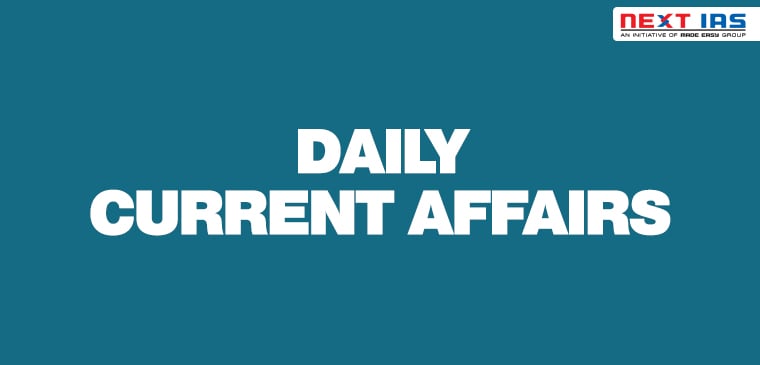
In News
Recently, the Cabinet approved the Extension of term of the Commission constituted under Article 340 of the Constitution.
About
- The Commission was constituted to examine the issue of Sub-categorization within Other Backward Classes (OBCs) in the Central List.
- The extension is for 6 months beyond 31st July 2021 and upto 31st January 2022.
Benefit of this extension
- The proposed extension of tenure and addition in its terms of reference shall enable the “Commission” to submit a comprehensive report on the issue of sub-categorization of OBCs, after consultation with various stakeholders.
Background
- Setup: The Rohini Commission, set up in October 2017
- Objective:
- to examine the sub-categorisation of Other Backward Classes (OBCs) and
- the equitable distribution of the benefits reserved for OBCs among these
- Reason for extension: This extension came after the Supreme Court dismissed the central government’s review plea against the Court’s May 5th verdict that stated that the 102nd amendment to the Constitution takes away the states’ power to identify Socially and Economically Backward Classes (SEBC) in the region.
- 102nd Constitutional Amendment:
- It gives constitutional status to the National Commission for Backward Classes.
- It also inserted Article 338B in the Constitution, which deals with the structure, duties and powers of the commission, and
- Article 342A, which gives the President the power to notify a class as SEBC and the power of Parliament to alter the central SEBC list.
- Subcategorization of OBC
- Reservation given: OBCs are granted 27% reservation in jobs and education under the central government.
- Supreme Court’s intervention: In September last year, a Constitution Bench of the Supreme Court reopened the legal debate on sub-categorisation of Scheduled Castes and Scheduled Tribes for reservations.
- Only affluent communities enjoying reservation: The debate arises out of the perception that only a few affluent communities among the over 2,600 included in the Central List of OBCs have secured a major part of this 27% reservation.
- Rohini Commission was constituted:
- To examine this, the Rohini Commission was constituted on October 2, 2017.
- At that time, it was given 12 weeks to submit its report, but has been given several extensions since, the latest one being the 11th.
- The other member in the Commission is former journalist Jitendra Bajaj, director of the Centre for Policy Studies.
- Before the Rohini Commission was set up, the Centre had granted constitutional status to the National Commission for Backward Classes (NCBC).
Terms of Reference for Commission:
- To examine the extent of inequitable distribution of benefits of reservation among the castes or communities included in the broad category of OBCs with reference to such classes included in the Central List;
- To work out the mechanism, criteria, norms and parameters in a scientific approach for sub-categorisation within such OBCs;
- To take up the exercise of identifying the respective castes or communities or sub-castes or synonyms in the Central List of OBCs and classifying them into their respective sub-categories.
- To study the various entries in the Central List of OBCs and recommend correction of any repetitions, ambiguities, inconsistencies and errors of spelling or transcription.
Findings so far
- In 2018, the Commission analysed the data of 1.3 lakh central jobs given under OBC quota over the preceding five years and OBC admissions to central higher education institutions, including universities, IITs, NITs, IIMs and AIIMS, over the preceding three years.
- The findings were:
- 97% of all jobs and educational seats have gone to just 25% of all sub-castes classified as OBCs;
- 24.95% of these jobs and seats have gone to just 10 OBC communities;
- 983 OBC communities — 37% of the total — have zero representation in jobs and educational institutions;
- 994 OBC sub-castes have a total representation of only 2.68% in recruitment and admissions.
- As per the report submitted to the NCBC by the Department of Personnel and Training
- OBC representation is 16.51 % in group-A central government services,
- 13.38 % in group-B,
- 21.25 % in group-C (excluding safai karamcharis) and
- 17.72 % in group-C (safai karamcharis).
- This data was for only 42 ministries/departments of the central government.
- Reason for low numbers is that a number of posts reserved for OBCs were being filled by people of general category as OBC candidates were declared “NFS” (None Found Suitable).
Image Courtesy: TOI
|
National Commission for Backward Classes
|
Source: PIB
Previous article
Supreme Court Strikes Down Tribunals Ordinance
Next article
25 Years of PESA Act